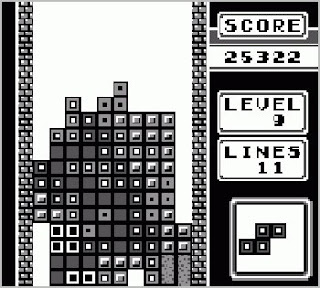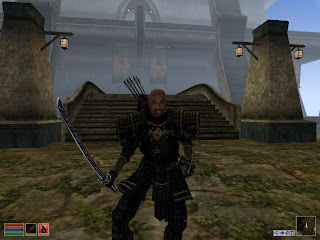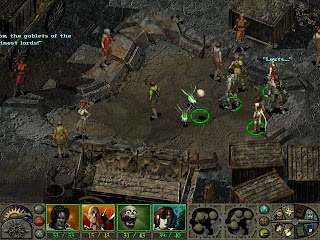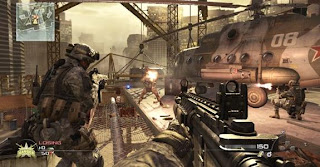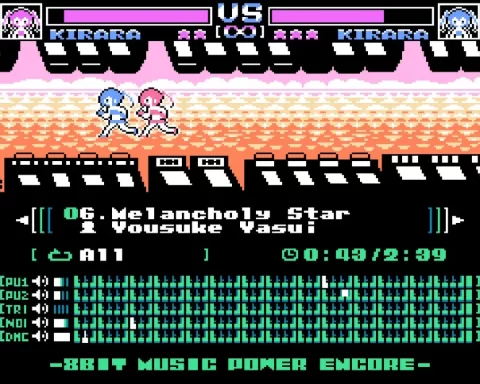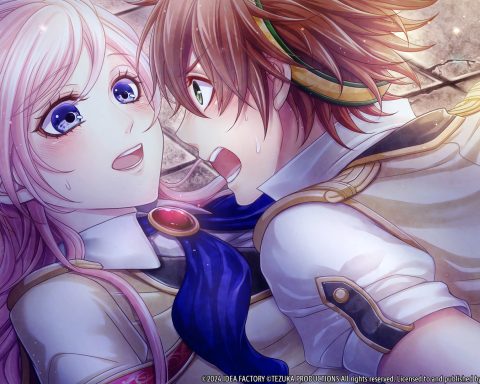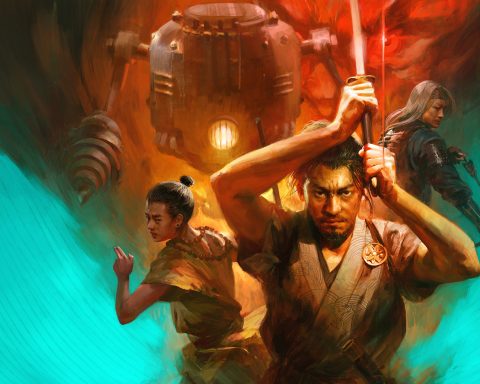
As you would know from looking at our scoring policy, a 5/5 game to Digitally Downloaded is not the perfect game. What it is, rather, is a must-have game.
Are there perfect games, though? Probably not, as an entertainment and art form, gaming is such a subjective thing that ‘perfection’ is something that no one is going to agree on. But that’s not to say we can’t think about the possibilities, though. Below is a list of ten games that we believe have a strong case for being considered ‘perfect,’ for their innovation, their impact on the market and the simpe fact that in many cases, they haven’t been bettered yet.
We’re very interested to hear what you believe are the ‘perfect’ games, either leave a comment below the article, or sign up on our forums!
We’re talking about the Game Boy version of this classic puzzler, naturally, and Tetris’ impact has been such that it kick-started the entire handheld gaming phenomenon and almost single handedly made the Game Boy a massive success for Nintendo.
This simple, cheerful little game was so popular for a simple reason – it came packed-in with the console. It was perfect at showing off how good the Game Boy was at being a portable console, it was an amazingly addictive formula, and it was two player, and because everyone had a copy, this game was easy to find some multiplayer action with.
Of all the old arcade games, Space Invaders has probably become the most influential in the modern gaming world. Taito’s little pixel alien horrors are found everywhere now, from mainstream fashion, to ice cube trays, especially good games (play Space Invaders Evolution if you don’t believe me), and entire arcades in Japan.
Pac-Man and Asteroids are two other arcade properties that have stood the test of time, but the core gameplay of Space Invaders has remained so visceral and relevant that it leaves this more abstract game designs behind as curiosities. Space Invaders remains an enormously important icon of the entire games industry.
Many would make the case for the original Super Mario Brothers. Still others would vote for more modern classics like Mario 64 or even Galaxy, but for our mind, Super Mario Brothers 3 is the closest the series has come to true perfection.
From the incredible level design, the hugely innovative world maps that have since become a staple of the Mario universe, right through to the incredible music score, the secrets to find and explore and the various awesome suits (racoon, tanooki) to give to Mari to wear, Super Mario Brothers 3 was a massive game that even non-platformer fans can get right into.
Some will prefer Oblivion, but for sheer impact, Morrowind is the more important game. Some would say it looks terrible; I’d suggest it has an acquired visual aesthetic (in other words, I quite like how it looks), but regardless, the visuals are relatively unimportant. What Morrowind is is a massive, 3D world to explore, where there’s as much joy in coming across a small village tucked away in the wilderness than following the lengthy main plot.
The open-ended ethics of the game allowed you to either help that village through its problems (and every village had them), or slaughter the entire town. Again this is all present in other Elder Scolls games, but Morrowind was much the same as Zelda: Ocarina of Time (see below); it was the game that dragged the series into a world of new opportunities in 3D, and for the first time made simply wandering around the landscape for hours on end fun.
Square Enix has built many, many fine JRPGs over the years, but perhaps none as important as Chrono Trigger. This is the game that people hacked to propose to their girlfriends, this is the game that people buy again and again every time it’s released. The cult following behind Trigger is amazing, and entirely justified.
What people loved about the game was the characters. Where Morrowind (above) made you make your own story, Chrono Trigger told you a story, but it was pulled off with such style, that you could easily argue that the performance hasn’t been bettered by any JRPG since. As a landmark in game storytelling, then Chrono, deserves its place in this list.
Another game with a strong story to tell, Torment easily holds the title as the best Dungeons & Dragons game ever made, and amongst such caliber as Baldur’s Gate, that’s an impressive feat.
What stands the game apart is the amazing fantasy setting of Planescape, a city that is a literal melting pot of humanity and monsters from across the universe. Throw in some open ended gameplay, and the perfect implementation of the very high quality D & D mechanics, and here’s a game that RPG fans still recommend front of mind to genre newbies.
It’s amazing that so many other games before and since have managed to squander the (literal) library of source material that D & D provides.
Is anyone surprised that Starcraft has become a national sport in Korea? The game is so finely tuned, and so well balanced, that it has allowed an entire sport to spring up around it, with games being broadcast on TV, and contracts/ sponsorships worth very real money on offer to the experts.
Watching the Koreans play, you learn pretty quickly why Starcraft is a strategy game, because while it requires fast reflexes and thinking, it also opens the door to heavy use of very real military strategies.
Activision went through their legal controversies, it was because of this game that fans were concerned with the future quality of the franchise.
It’s held up since – love it or hate it, it’s impossible to deny that Call of Duty still dominates this industry, with innumerable pretenders trying to emulate the exact formula that Modern Warfare turned into a megahit. On raw influence, then, this game is almost Shakespearean.
For a time, FPS games were not glorified arcade shooting galleries, dragging people down linear pathways from one set piece to another. Goldeneye 007 on the N64 was the reason for that.
Goldeneye set in motion a kind of intelligent FPSer, where there were objectives, alternative routes through missions, and difficulty levels that scaled more than enemy accuracy and health – it gave you more, and more challenging objectives to achieve too.
And then there was the multiplayer, which chewed up many of our youths. Split screen multiplayer may be going the way of the Dodo, but at least there are memories of this game.
By contrast, the recent Goldeneye remake for Nintendo Wii (and, soon, HD consoles) is, indeed, a shooting gallery in the mould of Modern Warfare 2. We live in a very different era of FPSers now.
The Legend of Zelda is one of those series that has managed to maintain a high standard throughout its long history, but Ocarina of Time was absolutely spectacular. The warm memories of seeing Link and Hyrule realised in gorgeous (even now, it’s gorgeous, if primitive) 3D is a moment no fan can forget.
The secret, after years of thought on the issue, is in the music. As good as the top-down, 2D Zelda games are, the memorable music score has always been epic and expansive. That suited 3D far more, so for the first time in Ocarina of Time we saw the perfect marriage because the beautiful music score, the vision of the series, the dungeon puzzles (the developers did a good job of using that extra dimension to freshen what is often a formulaic experience in dungeons), and Hyrule itself.

